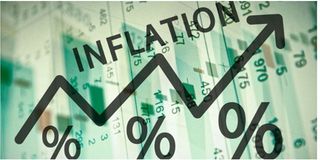Businesses record slump in sales on inflation, new taxes

Inflation dropped for the second consecutive month to 7.3 percent in July driven by lower prices of food, cooking gas, and electricity.
Businesses recorded a slump in sales for the third month in a row in July, driven by high inflation amid a weak shilling and new tax measures introduced by the Kenya Kwanza administration which saw customers cut spending.
Stanbic Bank Kenya’s latest Purchasing Managers’ Index (PMI) shows businesses suffered a significant fall in demand last month as customers continued to rein in spending amid steep inflation which was accelerated by political protests.
The index tracks business conditions in the economy using individual measures such as output, new orders, costs, selling prices, exports, and employment.
The July PMI dropped to 45.5, down from 47.8 in June. This marks the third consecutive monthly drop from a score of 49.4 in May, and the sixth month in a row the index has fallen below 50.
Readings above 50 signal an improvement in business conditions on the previous month, while readings below that mark show a deterioration. The pace of deterioration in July was the fastest in almost a year.
The report said the deteriorating operating conditions were driven by a sharp and accelerated fall in new business inflows, as firms highlighted a drop in client demand due to the cost of living crisis.
Alongside this, several firms noted that political demonstrations had adversely affected sales, it added.
Four of the five monitored sectors recorded a decline in sales in July, with agriculture, which contributes to nearly a quarter of Kenya’s Gross Domestic Product (GDP), the only category to post inside growth territory.
The depressed demand saw the businesses record a sharp drop in output over the month, which was the second-worst since 2017 when excluding lockdown-affected periods.
Firms often noted that weak orders resulted in cash flow issues that limited activity.
“July’s PMI headline trajectory comes as no surprise given events during the past month. Political protests, an increase in pump prices by approximately Sh12.61 in July, the further tightening of financial conditions as well as a further depreciation of the shilling — all of which saw the private sector deteriorating for a sixth straight month,” said Christopher Legilisho, an economist at Standard Bank
“Notably, the survey results show that the July contraction in output was the deepest since August 2022. Inflation seems set to stay stickily high due to Kenyan businesses facing intractable input, output, and wage-price pressures,” he said.
Inflation dropped for the second consecutive month to 7.3 percent in July driven by lower prices of food, cooking gas, and electricity defying the sharp increase in fuel prices during the month.
It was the lowest year-on-year inflation since May last year when it stood at 7.1 percent, and a significant drop from 7.9 percent in June, according to the Kenya National Bureau of Statistics (KNBS).
Between June and July, the price of Irish potatoes dropped at the fastest rate of 12.2 percent with a kilogram selling for Sh89.07 in July down from Sh101.41 in the previous month.
The PMI report shows price pressures at Kenyan companies remained severe in July due to a sharp rise in input costs especially driven by the continued decline in the shilling exchange rate. Higher fuel prices and increased tax burdens were also cited, while some firms reportedly upped their workers' salaries amid the cost-of-living crisis, noted the report.





